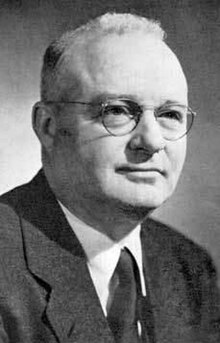The ongoing saga of a weekly That-Was-The-Week-That-Was posting.
Commenting on things that caught my attention for better or for
worse and left me shaking my fist at the sky and shouting "Whyyyy!!!"

It's easy to laugh about the mistakes of the past isn't it? We look back at the surgeons who snubbed the idea of germs, the explorers who expected to fall off the edge of the world and anyone who ever thought Frankie Goes To Hollywood were a good band - but often its only with hindsight that we realize how little we knew
Take Thomas Midgley Jr. A worker at General Motors who was one of the key figures looking at creating a solution for the knocking of engines in cars and came up with tetraethyllead (leaded petrol)
Of course the difference in his case was that it seems from the wikipedia entry that General Motors knew full well the impact of lead in petrol: their factory workers experienced hallucinations, depression and a high suicide rate - none of which stopped Midgley from pouring the petrol on his arm at a press conference and inhaling it to prove there would be no ill effects (he had to have 12 months medical treatment as a result, which didn't make the papers)
Despite the closure of the factory amongst health concerns leaded petrol continued to be sold until just before the end of the 20th century, polluting the streets and causing unknown levels of illness and damage and Midgley kept his job, moving to the fridgidare section of the company
It was here that he worked on and helped develop Freons - the first of the CFCs.
Apparently not content with polluting the streets he had inadvertantly helped destroy the ozone layer and added towards global warming.
But hang on a minute before you condem him - as i said at the start: we don't always know when we're wrong.
How many of today's must-have gadgets and ways of life may in time prove to be harmful? There has long been some feeling that mobile phones and power lines can be bad for the health - what if one day we discover that we have, all along, been destroying the planet?
The one thing we can say about today is that we now know beyond any reasonable doubt that the earth has finite resources and that at the rate we are using them we will surely exhaust them sooner rather than later: and yet how many of us would go without our gadgets? Even if we would - with third world countries rapidly coming on line is there anything we can realistically do?
Over the course of his career Midgley was granted over 100 patents - does that mitigate for the harm of a few? The harm that CFCs were doing was not discovered until decades after his death
His story does not end well, I'm afraid - in later life Thomas Midgley suffered from poliomyelitis and struggled to move around. He actually went so far as to invent an intricate system of pulleys and wires to get him out of bed - which he got trapped in and strangled to death
Now that really is an example of an invention gone wrong
5 comments:
Oh man what a legacy! Ouch!
I'm pretty sure that we do things every day that are harmful in the long run. For example, my candy bar habit...
But he never stopped trying...
Okay, he strangled to death, but did the device get him out of bed?
At least he did not deliberately set out to do harm, which is more than can be said for some.
Absolutely fascinating information! I suspect that perhaps, if there is a hell, a place was held for Midgley for developing leaded gas and Freons. Something must have seemed amiss, askew somewhere along the line, and he chose to ignore his senses or those of others.
The extraction of the stuff to make cell phones, fracking, using the oceans as dumps, and even
our culture of "fast clothes," are all a part of what is killing off our planet. The difference between old Midgley and modern man is that we know better, or at least those with working brain cells admit they know better...
Post a Comment